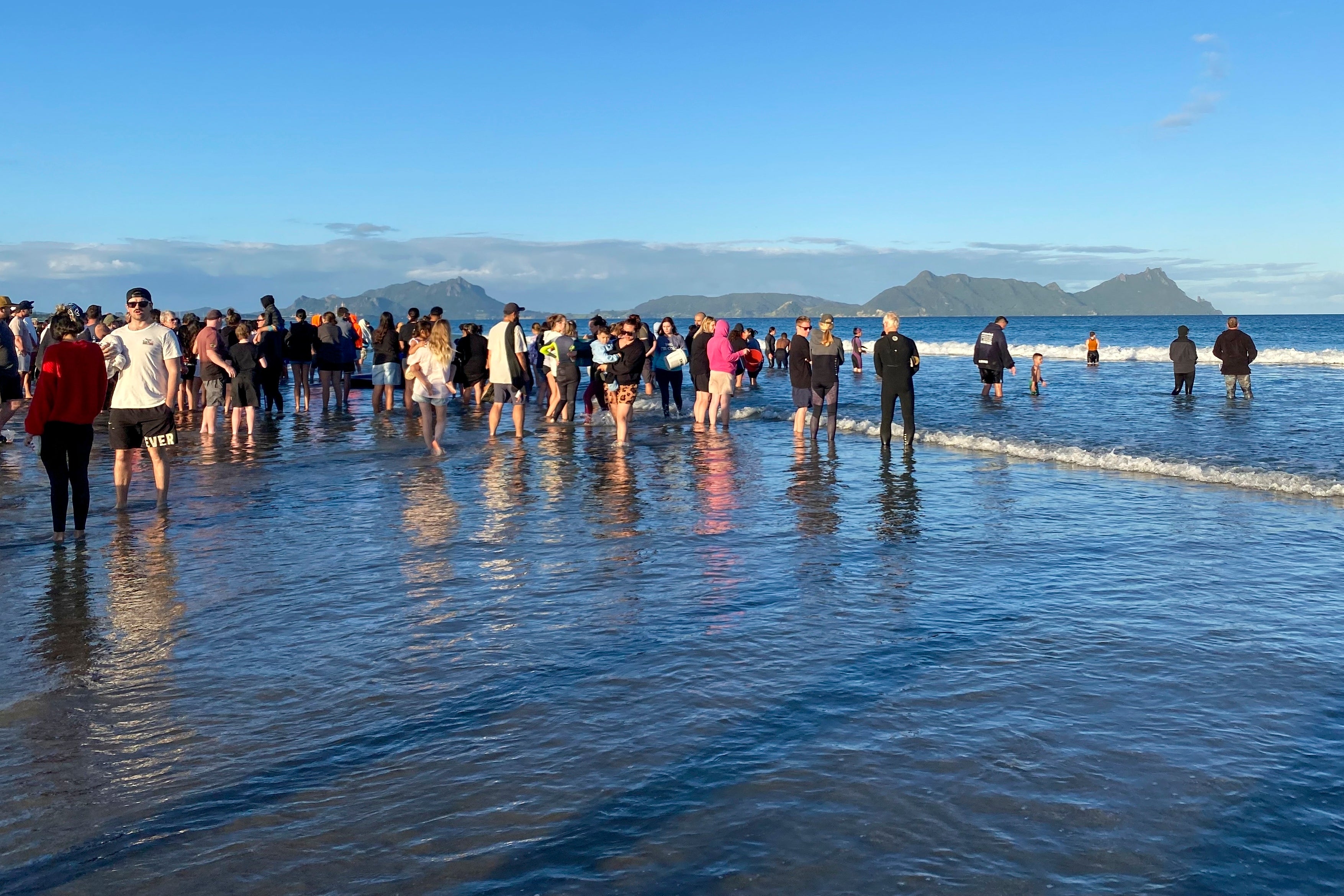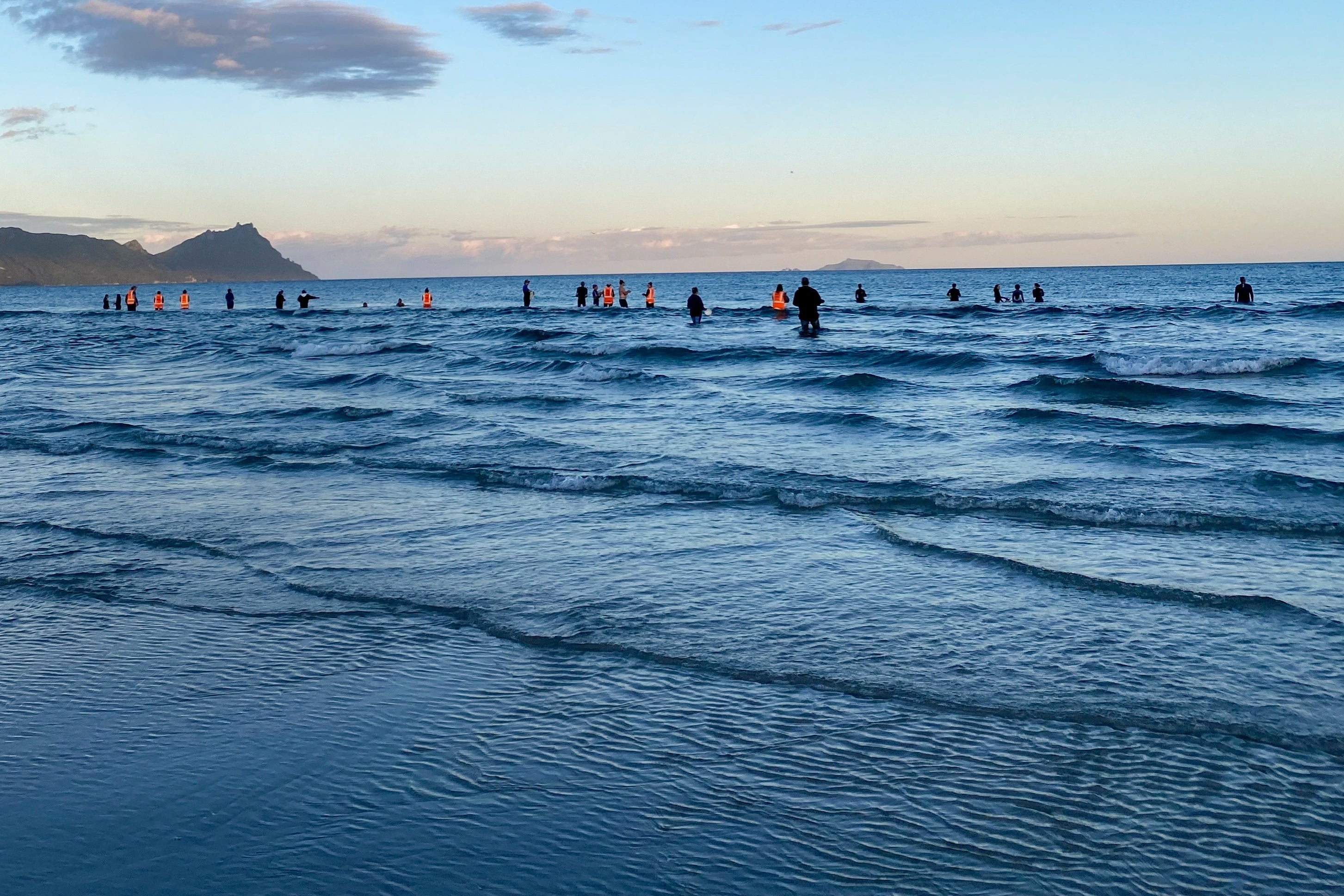New Zealand locals help rescue more than 30 whales stranded on beach
Four of the pilot whales died, New Zealand’s conservation agency says
Your support helps us to tell the story
From reproductive rights to climate change to Big Tech, The Independent is on the ground when the story is developing. Whether it's investigating the financials of Elon Musk's pro-Trump PAC or producing our latest documentary, 'The A Word', which shines a light on the American women fighting for reproductive rights, we know how important it is to parse out the facts from the messaging.
At such a critical moment in US history, we need reporters on the ground. Your donation allows us to keep sending journalists to speak to both sides of the story.
The Independent is trusted by Americans across the entire political spectrum. And unlike many other quality news outlets, we choose not to lock Americans out of our reporting and analysis with paywalls. We believe quality journalism should be available to everyone, paid for by those who can afford it.
Your support makes all the difference.More than 30 pilot whales that stranded themselves on a beach in New Zealand were safely returned to the ocean after conservation workers and residents helped to refloat them by lifting them on sheets.
Four of the pilot whales died, New Zealand’s conservation agency said.
New Zealand is one of the most common places for beachings and pilot whales are especially prone to becoming stranded.

A team was monitoring Ruakaka Beach near the city of Whangarei in New Zealand’s north on Monday to ensure there were no signs of the whales saved on Sunday stranding again, the Department of Conservation said. The agency praised as “incredible” the efforts made by hundreds of people to help save the foundering pod.
“It’s amazing to witness the genuine care and compassion people have shown toward these magnificent animals,” Joel Lauterbach, a Department of Conservation spokesperson, said in a statement. “This response demonstrates the deep connection we all share with our marine environment.”

A Maori cultural ceremony for the three adult whales and one calf that died in the stranding took place on Monday. New Zealand’s Indigenous people consider whales a taonga – a sacred treasure – of cultural significance.
New Zealand has recorded more than 5,000 whale strandings since 1840. The largest pilot whale stranding was of an estimated 1,000 whales at the Chatham Islands in 1918, according to the Department of Conservation.
It’s often not clear why strandings happen but the island nation’s geography is believed to be a factor. Both the North and South Islands feature stretches of protruding coastline with shallow, sloping beaches that can confuse species such as pilot whales – which rely on echo-location to navigate.
